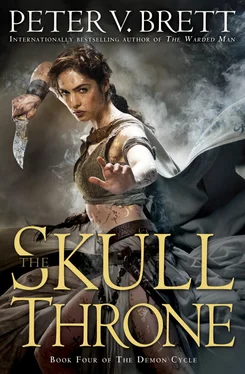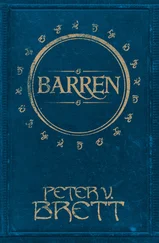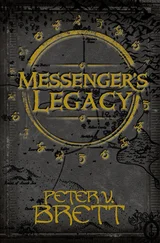Inevera: (1) Jardir’s powerful dama’ting First Wife. Kaji tribe. Also known as the Damajah. (2) Krasian word meaning “Everam’s will” or “Everam willing.”
Jamere: Abban’s dama nephew and heir apparent.
Jardir: The seventh son of Kaji, the Deliverer. Once a great house, the line of Jardir lasted more than three thousand years, slowly dwindling in number and glory until its last son, Ahmann Jardir, restored its renown.
Jayan: Jardir’s first Sharum son by Inevera. Sharum Ka.
Jiwah: Wife.
Jiwah Ka: First wife. The Jiwah Ka is the first and most honored of a Krasian man’s wives. She has veto power over subsequent marriages, and can command the lesser wives.
Jiwah Sen: Lesser wives, subservient to a man’s Jiwah Ka.
Jiwah’Sharum: Literally “wives of warriors,” these are women purchased for the great harem of the Sharum during their fertile years. It is considered a great honor to serve. All warriors have access to their tribe’s jiwah’Sharum, and are expected to keep them continually pregnant, adding warriors to the tribe.
Jurim: Kai’Sharum Spear of the Deliverer who trained with Jardir. Kaji tribe.
Kad’: Prefix meaning “of.”
Kai’Sharum: Krasian military captains, the kai’Sharum receive special training in Sharik Hora and lead individual units in alagai’sharak. The number of kai’Sharum in a tribe depends on its number of warriors. Some tribes have many, some just one. Kai’Sharum wear dal’Sharum blacks, but their night veils are white.
Kai’ting: Jardir’s mother, sisters, nieces, and Sharum daughters. Kai’ting wear a white veil with their blacks. Striking one means death or the loss of the offending limb.
Kaji: The name of the original Deliverer and patriarch of the Kaji tribe, also known as Shar’Dama Ka, as the Spear of Everam, and by various other titles. Kaji united the known world in war against demons some thirty-five hundred years past. His seat of power was the lost city of Anoch Sun, but he also founded Fort Krasia.
Kaji had three artifacts for which he was famous: (1) The Spear of Kaji—the metal spear he used to slay alagai by the thousand. (2) The Crown of Kaji—bejeweled and molded in the shape of powerful wards. (3) The Cloak of Kaji—a cloak that made him invisible to demons, so he could walk freely in the night.
Kajivah: Mother of Ahmann Jardir and his three sisters, Imisandre, Hoshvah, and Hanya. Also known as the Holy Mother. While not a trained cleric, she has great (if largely undefined) religious power among the commoners, who adore her.
Kasaad: Inevera’s father. Crippled khaffit. Former Sharum.
Kaval: Gavram asu Chenin am’Kaval am’Kaji. Drillmaster of the Kaji tribe. One of Jardir’s dal’Sharum instructors during his Hannu Pash. Killed by a mimic demon.
Khaffit: A man forced to take up a craft instead of becoming a cleric or warrior. Lowest male station in Krasian society. Expelled from Hannu Pash, khaffit are forced to dress in the tan clothes of children and shave their cheeks as a sign that they are not men.
Kha’Sharum: Able-bodied khaffit whom Jardir has made into low-skill infantry. Kha’Sharum wear tan robes, turbans, and night veils to show their khaffit status.
Kha’ting: Infertile women. Lowest female caste in Krasian society.
Khevat: Father of Ashan. Most powerful dama in Krasia.
Lifan: Bespectacled and weak-looking Sharach kha’Sharum who serves as tutor to Fahki and Shusten. One of Abban’s Hundred.
Little sisters: Inevera’s term for her sister-wives.
Lonely road: Krasian term for death. All warriors must walk the lonely road to Heaven, with temptations on the path to test their spirit and ensure that only the worthy stand before Everam to be judged. Spirits who venture off the path are lost.
Maji: Jardir’s second Majah son, a nie’dama who will have to fight Aleverak’s heir for the Majah Damaji throne.
Manvah: Mother of Inevera. Wife of Kasaad. Successful basket weaver .
Mehnding tribe: The largest and most powerful tribe after the Majah, the Mehnding devote themselves wholly to the art of ranged weapons. They build the catapults, slings, and scorpions used in sharak, quarry and haul the stones for ammunition, make the scorpion bolts, etc.
Melan: Kaji dama’ting daughter of Qeva. Granddaughter of Kenevah. Former rival of Inevera. Lover of Asavi .
New Bazaar, the: Rebuilt Great Bazaar in the outer city of Everam’s Bounty.
Nie: (1) The name of the Uncreator, feminine opposite to Everam, and the goddess of night and demonkind. (2) Nothing, none, void, no, not. (3) Prefix for Krasian children in training.
Nie’dama: Nie’Sharum selected for dama training.
Nie’dama’ting: Krasian girl who is in dama’ting training but is too young to take her veil. Nie’dama’ting are given great respect by men and women alike, unlike nie’Sharum, who are less than khaffit until they complete the Hannu Pash.
Nie Ka: Literally “first of none,” a term for the head boy of a nie’Sharum class, who commands the other boys as lieutenant to the dal’Sharum drillmasters.
Nie’s abyss: Also known as the Core. The seven-layered underworld where alagai hide from the sun. Each layer is populated with a different breed of demon.
Nie’Sharum: Literally “not warriors,” name for boys who have gone to the training grounds to be judged and set on the path to dal’Sharum, dama, or khaffit.
Nie’ting: Barren women. The lowest rank in Krasian society. Also known as kha’ting.
Night veil: Veil worn by dal’Sharum during alagai’sharak to hide their identities, showing that all men are equal allies in the night.
Oot: Dal’Sharum signal for “beware” or “demon approaching.”
Par’chin: “Brave outsider”; singular title for Arlen Bales.
Pig-eater: Krasian insult referring to khaffit. Only khaffit eat pig, as it is considered unclean.
Push’ting: Literally “false woman,” Krasian insult for homosexual men who shun women altogether. Homosexuality is tolerated in Krasia only so long as the men also impregnate women and add to their tribe.
Qasha: Jardir’s Sharach Damaji’ting wife.
Qeran: One of Jardir’s Kaji dal’Sharum drillmasters during his Hannu Pash. Later crippled, he is taken in by Abban to train his kha’Sharum Hundred. Bodyguard and advisor to Abban.
Читать дальше
Конец ознакомительного отрывка
Купить книгу












